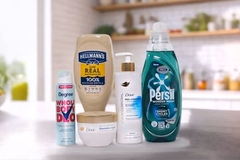Scientists dive into deep sea water’s potential as a sustainable antimicrobial cosmetics ingredient

10 Jul 2023 --- Deep sea water has been proven to exhibit antimicrobial properties against Escherichia coli and Staphylococcus aureus, which can cause skin infections. New research posits that since concentrates of deep sea water can inhibit these bacteria, it can be used to develop organic products, especially for cosmeceutical applications.
The research suggests that deep sea water can enable industry players to meet the demand for natural cosmetics by using it as a replacement for chemical ingredients. Deep sea water is also deemed “substantially safer” and environmentally sustainable for future cosmetics.
“Deep sea water is the name for the water that makes up the seas, which make up over 70% of the Earth’s surface. On average, 96.5% of sea water is composed of clean water, 2.5% salt, with a small portion containing trace amounts of particles, dissolved inorganic and organic chemicals and atmospheric gasses,” note the authors.

“There are many types of chemical elements found in deep sea water. Minerals such as magnesium, calcium, chlorine, sodium, potassium and vanadium are available in deep sea water.”
Escherichia coli and Staphylococcus aureus are some of the most prevalent bacteria on human skin, share the researchers.
Greater concentration, greater performance
The scientists assessed the antibacterial properties of deep sea water obtained from Peraian Kelantan on the East Coast of Peninsular Malaysia. They used the well diffusion method and the Mueller-Hinton agar plate technique.
They found higher concentrations lead to more significant bacterial inhibition areas on the testing dish. Moreover, it was deemed safe as there were zero traces of mercury in the sample tested. Higher concentrations of deep sea water lead to more significant bacterial inhibition.
Higher concentrations of deep sea water lead to more significant bacterial inhibition.
Using two different concentrates, the scientists prepared 200 mL of pure deep sea water, while the second sample of 500 mL was boiled and left to evaporate at 80 °C and 500 rpm until the total volume reached 50 mL.
The second sample was considered to be ten times concentrated by volume.
Efficacy against Staphylococcus aureus
The samples were mixed with agar-agar powder to create a base on which Escherichia coli and Staphylococcus aureus were swabbed.
After incubating for 24 hours, the antimicrobial properties were calculated by measuring the zone of inhibition.
“The pure deep sea water sample shows a positive result toward the Escherichia coli strain. The diameter for the inhibition zone obtained from the study is about 7.2 mm,” detail the authors.
Meanwhile, the ten times concentrated deep sea water shows the highest inhibition zone, about 12.5 mm and 12.75 mm for Escherichia coli and Staphylococcus aureus, respectively.”
Overall, the inhibition zones were greater against Staphylococcus aureus than Escherichia coli strains.
Researching waters
In other recent discoveries surrounding the dermatological properties of aquatic ingredients, scientists discovered anti-aging and healing solutions by probing the regenerative properties of Hydractinia symbiolongicarpus, a minute animal living on hermit crabs’ shells.
Meanwhile, Italian researchers evaluated the biochemical composition of natural and cultivated microbial communities growing around hot springs, known as bioglea, to reveal antimicrobial and radical scavenging activities.
Researchers have also found proof-of-concept for the cosmeceutical application of extracts from the yellow-green microalgae strain Trachydiscus minutus.
By Venya Patel













